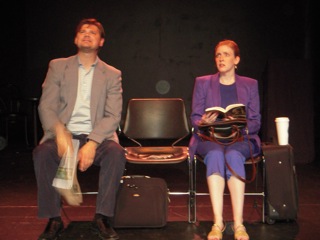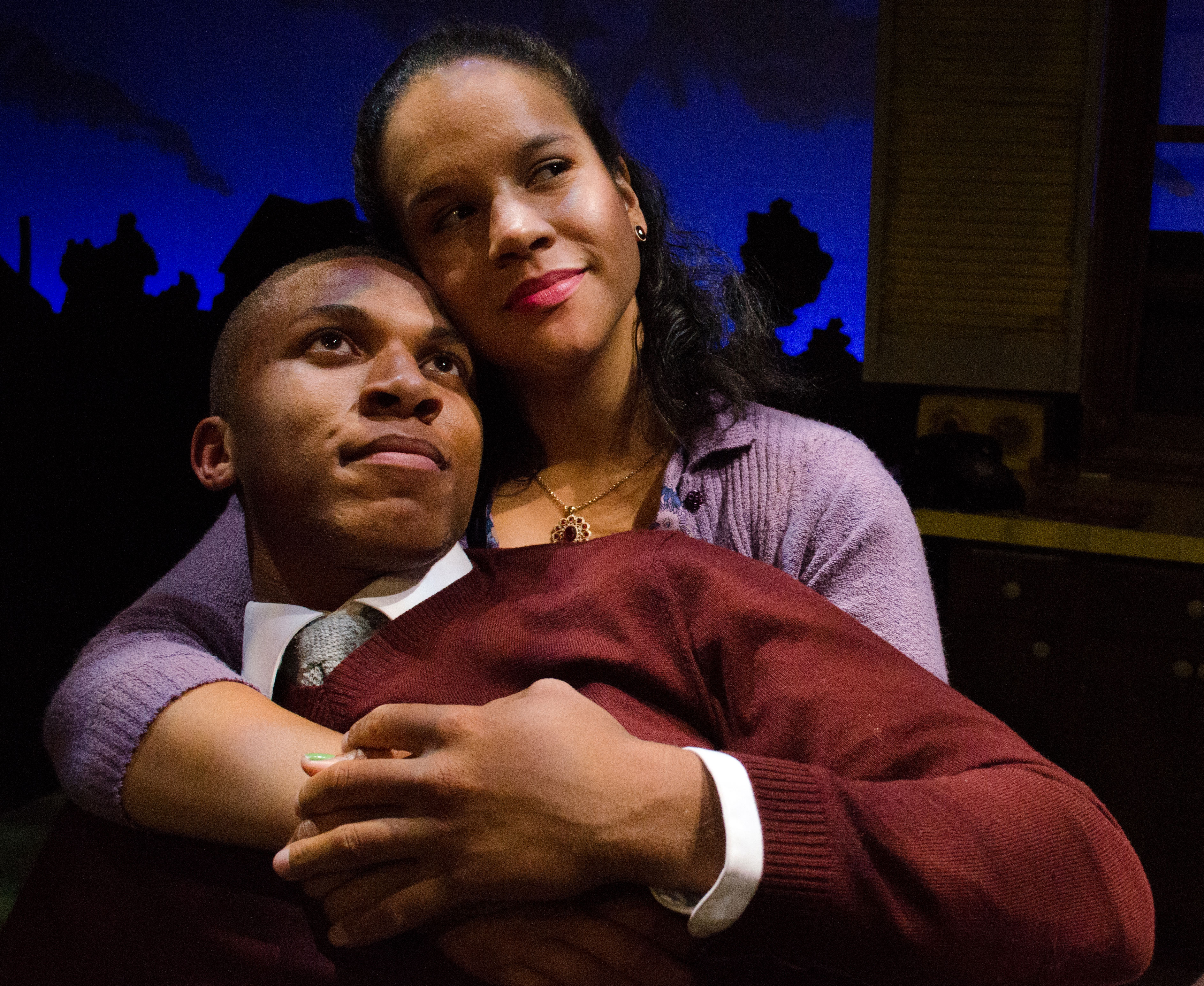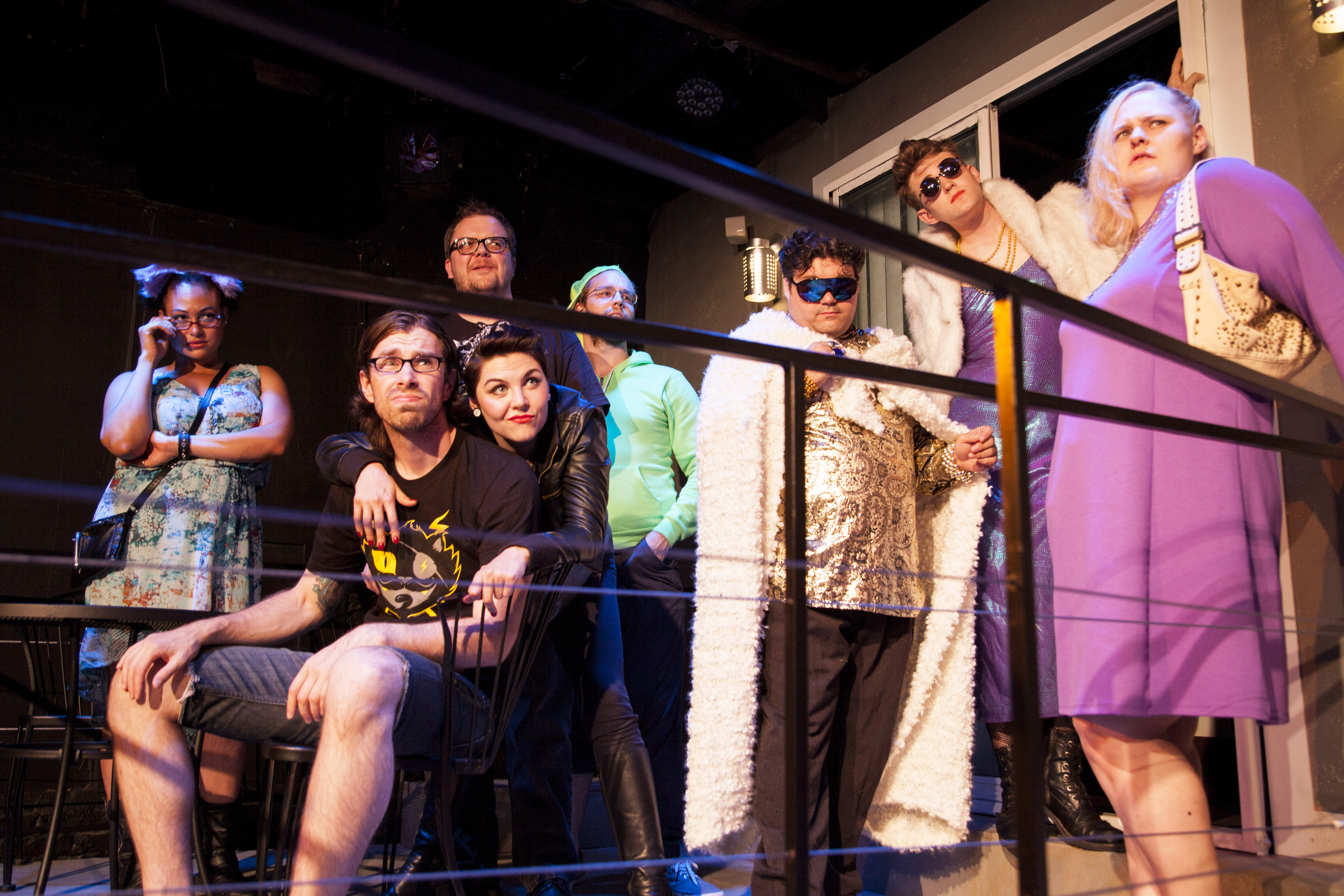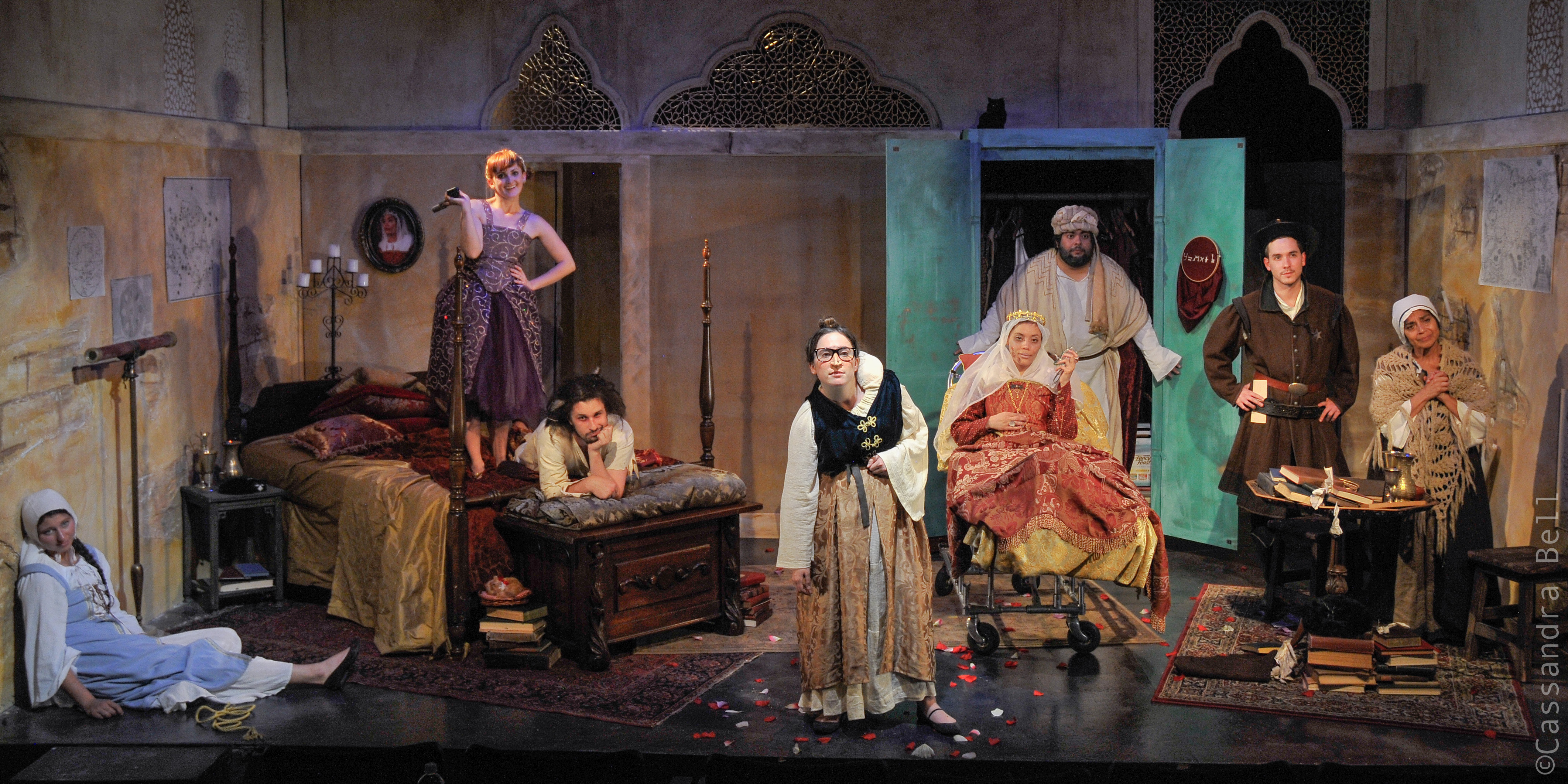There are two schools of thought when it comes to 9/11: one, that after a decade’s remove you couldn’t possibly add one more detail that would make a scintilla of difference; and two, that your perspective is as unique and valuable as anyone else’s, save those who were involved.
Local playwright/director Jim Moran places himself firmly in the latter camp with his bittersweet new romance. Dave, a New York entrepreneur in a loveless marriage, and Amy, a New York ingénue off to meet her fiance, both miss their flight from Boston to L.A. on September 10. He’s an unabashed flirt. She’s spent enough time in singles bars to be able to smell his randy shtick a mile away. “You look familiar” is his opening gambit, and she bats him away with less concern than you’d give a fly.
But when it turns out Dave really does recognize Amy from a party the year before, and he can describe the dress she wore in meticulous detail, he begins to wheedle his way into her psyche. Dave starts seducing Amy with the methodical patience of a burglar picking a particularly tricky lock.
Moran sets up two potentially melodramatic questions in September Skies: Will the two hook up? Will this never-to-be couple board American Airlines Flight 11, destined to plow into the World Trade Center the next morning? But because the writing is taut, witty, and true, and the performances sterling, what might have been a bad TV movie-of-the-week is instead a study in how desperately we flail for what we want during these few short years we call life.
David Foubert and Cheryl Platz are the would-be cheats; both play roles that are, for all their individual idiosyncrasies, archetypes. You’re sure you’ve had drinks with them, or was that guy or that girl flirting, telling yourself it was all harmless fun—until it wasn’t. Moran makes Dave and Amy memorable and three-dimensional, but also generic enough for us to identify with them. Viewing the play, you wonder if you’d bed that conquest or board that plane yourself.
Ten years on, your response to 9/11 tells strangers as much about you as the books you’ve read, the music you like, or the food you eat. After watching September Skies, many will probably share their stories of what happened that day in their lives. (I was hosting a morning drive-time radio show in Austin, Texas. I write about it in my blog, phinneyapolis.com.) That, I think, might be Moran’s larger point: That we are Dave and Amy. And that no matter where you were or what you were doing, everyone lost something precious that day.








